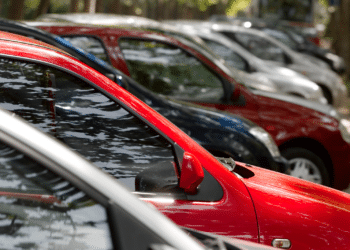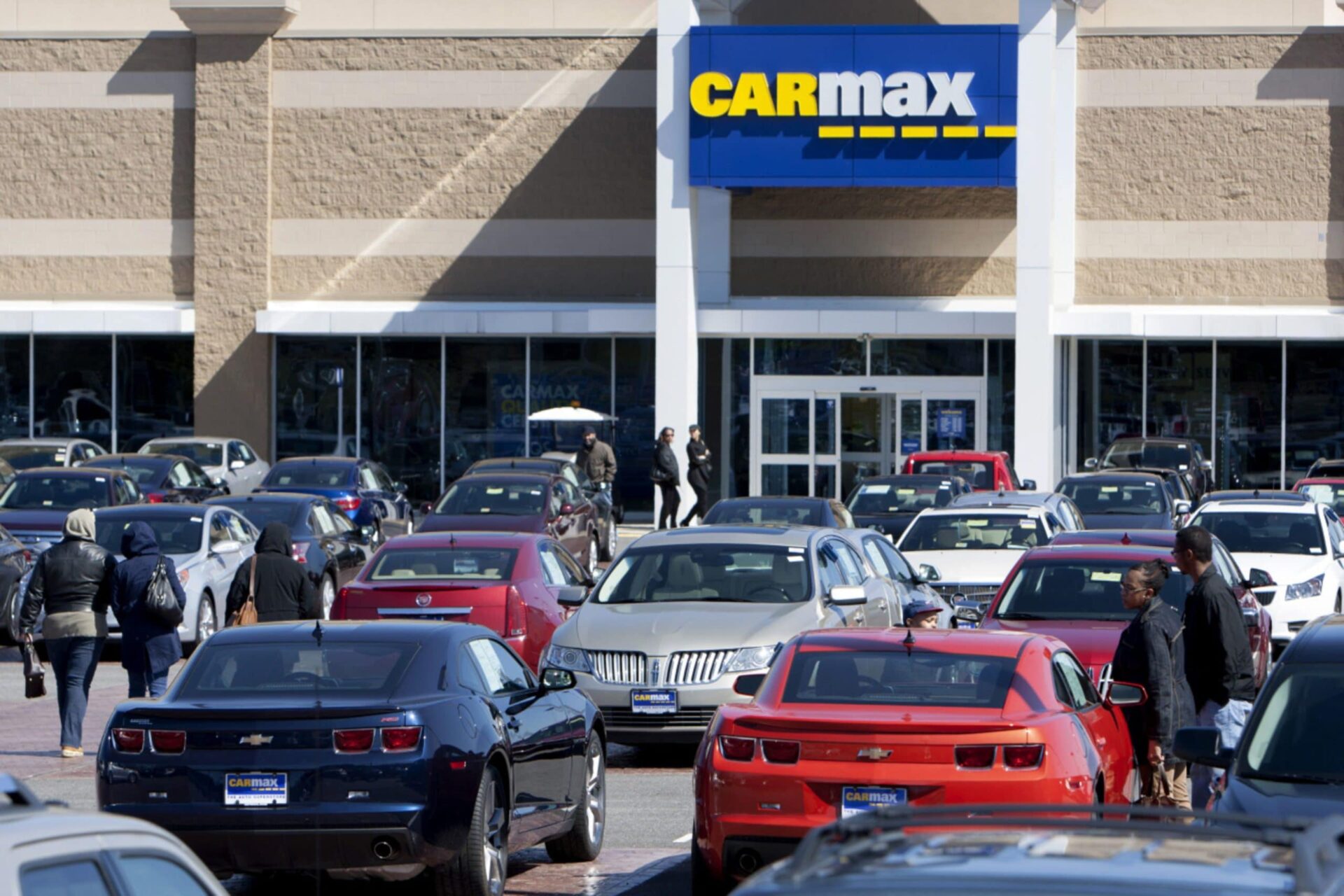COVID-19: Auto finance faces the global pandemic [FEATURE]

Editor’s note: This article first appeared in the April edition of the magazine, available now.
After a decade of exponential growth in the automotive market, the industry is at a standstill as it faces the negative impacts of a global pandemic set to be more harmful to the economy than the credit crisis of 2007.
In mid-January, when the first novel coronavirus case in the U.S. appeared in Washington state in a 35-year-old man who had returned from Wuhan, China — the outbreak’s epicenter — no one predicted the virus would snowball into a global pandemic. At press time, total cases in the U.S. clocked in at 199,092.
That number continues to grow.
In response, a wide range of nonessential businesses — including dealerships — have temporarily closed their doors and consumer spending has ground to a halt.
Both Ford Motor Co. and General Motors have tapped lines of credit to bolster cash flows as they halt production. CarMax is drawing down $510 million under a revolving credit facility to bolster its liquidity.
Other OEMs, such as American Honda, BMW AG and Toyota, have shuttered production in anticipation of muted consumer demand for automobiles. Fiat Chrysler Automobiles has extended the shutdown of its U.S. plant until April 14.
While the lasting effects of the COVID-19 pandemic on vehicle sales, access to funds, and loan and lease penetration rates is currently unknown, clearly the situation is fluid.
In fact, some new-vehicle sales forecasts have dipped to the range of 10.7 million units, according to TrueCar. As recently as March 16, new-vehicle sales were forecast to come in at 16.4 million units this year.
That’s a 35% decrease in the new-vehicle SAAR in a matter of weeks.
Banks, captives, credit rating agencies and dealerships are all trying to weather the pandemic and the unprecedented economic downturn it has wrought.
Capital markets take a hit
Liquidity is a key concern. Auto lenders, specifically captives and independent financiers, will find it harder to secure additional liquidity from capital markets due to the novel coronavirus, according to a report S&P Global Ratings shared with AFN last month.
“For most of the last decade, non-bank financial institutions have found relatively easy access to funding from capital markets and banks,” the report read. “However, during times of volatility that can dry up, and those reliant on short-term debt can be particularly affected.”
Investors, concerned about economic deterioration, are only going to make investments with higher returns than before the coronavirus crisis. These higher returns translate into wider spreads on securitizations. In other words, lenders will need to compensate investors more for their money. But lenders face pressure from consumers for lower rates.
The result: lenders get financially squeezed.
However, loan performance in the auto ABS market has not yet deteriorated due to COVID-19, said Amy Martin, senior director of structured finance at S&P Global, on March 19. February paydowns, which were aided by tax refunds, were good, Martin said, noting that S&P “hasn’t seen an impact yet” of the coronavirus on auto ABS deals as it’s too early to tell.
Fitch Rating Agency, for one, revised its outlook for the performance of auto loan and lease ABS deals to negative from stable due to coronavirus concerns. The outlook change reflects the ongoing impacts on unemployment and consumer household incomes, which will result in borrowers’ inability to repay their auto loans.
Further, the surge in jobless claims hit 3.3 million in March, dwarfing the Great Recession peak of 665,000 in 2009.
All factors represent “credit negatives for auto ABS portfolios,” Fitch noted.
Further, when looking at the impact on Chinese auto ABS performance as a comparison, Fitch has observed notable jumps in delinquencies and then those rolling into late-stage buckets, large declines in prepayment rates and recovery rates, and move up in losses well outside of normal trends, the rating agency noted. U.S. auto ABS transaction performance is expected to deteriorate in a similar manner starting this month and through April.
The auto ABS market has seen no issuance since March 11, around the time the coronavirus crisis kicked in. On March 11, three deals came to market, including a $778 million Westlake Financial deal. But the market has been quiet since then.
Even at that early date in the coronavirus crisis, spreads were starting to widen. For example, the Westlake deal required the lender to pay investors in its tranche 200 basis points of yield. Last December, Westlake was paying 90 basis points.
Carvana, too, saw a widening of spreads in its March 11 ABS issuance across all tranches, compared with its fourth-quarter 2019 securitization. Most notably, spreads doubled in its triple B tranche to 290 basis points.
That widening harkens back to the credit crisis.
Moreover, S&P expects March servicing reports — due in mid-April — to reflect a higher rate of extensions and delinquencies. Credit losses are also expected to increase, but the “magnitude of that will depend upon how long it takes for business activity to resume, and for fiscal stimulus to trickle down to those who have lost their hourly wages or had their incomes reduced,” Martin explained. She noted that the credit rating agency has seen a strong correlation between unemployment and credit losses.
During the first quarter, auto ABS issuance was rife with transactions before the pandemic took hold in the U.S., according to presale reports from S&P, Moody’s Investors Service, and DBRS Morningstar. Auto lenders such as Capital One Auto Finance, Ford Credit, GM Financial, Santander Consumer USA, Toyota Financial Services and World Omni, among seven others, injected roughly $6.9 billion of securities into the market.
In response to concerns about shrinking liquidity in capital markets, the Federal Reserve announced March 23 the revival of its term asset-backed securities loan facility (TALF) to provide increased access to funds and kindle investor demand.
The TALF, which includes an equity investment of $10 billion from the U.S. Department of Treasury, was first deployed during the credit crisis and will make $100 billion in loans available to investors to purchase bonds collateralized by auto loans and leases, floorplan loans and other asset classes, the Fed noted. Investors are required to take a “first-loss position” on the securities, meaning they would lose their entire investment before the Fed or Treasury suffered any losses.
Further, ABS deals must be AAA-rated and issued on or after March 23 to be eligible for TALF. Loans provided to investors under TALF will have a maturity of three years and come with a fee equal to 10 basis points to the loan amount. It is unclear whether TALF will alleviate the financial squeeze on lenders, although that is clearly the intent of the program.
A week prior to the Fed’s revival of TALF, the central bank — in conjunction with the Office of the Comptroller of the Currency and the Federal Deposit Insurance Corporation — revised the definition of “eligible retained income,” or how much capital banks have to store away, to better allow the financial institutions to lend money in times of stress. Financial institutions will now have to set aside the average of the previous four quarters of net income.
Currently, the largest banking institutions have $1.2 trillion in common equity and $2.9 trillion in high-quality liquid assets, the Fed said. Still, the central bank is concerned that the current economic climate and fears of limited liquidity will provide “strong incentive for these banking organizations to limit their lending.”
However, the Fed’s efforts may not be enough to stop muted demand for large purchases like vehicles, said Rutger van Faassen, vice president of consumer lending at Informa. “Given that the coronavirus is keeping most people at home, there will certainly be an impact on the number of people purchasing vehicles, which will impact the demand for financing,” he explained.
“In the short term, lowering the cost of financing will not increase the demand for auto financing. Longer term, assuming that at some point consumers will go back to purchasing vehicles, lower rates can increase demand for auto financing,” van Faassen said.
Dealers feel the pressure
In a matter of days, social distancing has graduated to full blown closures of all businesses considered “nonessential,” according to the Center for Disease Control and Prevention. As a result, light foot traffic at dealerships has quickly disappeared as dealerships across the nation are shuttering their doors with no reopening date in sight.
In markets with shelter-in-place orders, where dealerships are closed, sales are expected to decline between 80% and 90%, said Tyson Jominy, vice president of data and analytics at JD Power. In San Francisco, for example, retail sales are down 86% as of March 21.
One Memphis, Tenn.-based dealer, Landers Ford Lincoln Mercury, asked its lenders for relief, said Kent Ritchey, the dealership’s president. Landers funds through captives Ford Motor Credit and Nissan Motor Acceptance Corp. “We’ve gone to all of our full-time lenders and asked for deferred interest rates,” he said.
Captives and banks have heard their dealerships’ cries for assistance. GM Financial led the pack as the first captive to offer “the most aggressive program,” said Ritchey. General Motors’ announcement offers well-qualified borrowers interest-free financing — via GMF— for 84 months, with deferred payments for up to 120 days. The move woke up the industry and led to more OEM and captive incentives.
Ford Motor Credit, Toyota Financial Services, NMAC, Chase Auto, NextGear Capital, Ally Financial, VW Credit, Inc. and Santander Consumer USA followed suit, issuing relief options for their dealers.
Santander, partnered with FCA, launched a new incentive program, including 90 days to first payment on select FCA models. Also, the bank matched GMF’s incentives, offering 0% APR for 84 months on 2019 or 2020 FCA models.
Chase Auto, with an $80 billion portfolio, is zeroing in on its dealer network maintaining liquidity and cash flow, said Bruce Jackson, head of dealer services at the bank. “We have several relief options, such as deferring principal and interest on all commercial loans for 90 days,” Jackson said. “And we won’t require payment on the accrued interest until yearend.”
Volkswagen Group of America’s captive finance arm, VW Credit, Inc. has suspended curtailment payments on all new floorplan units, used brand auction purchased floorplan vehicles, floorplan units, and all standard used floorplan units. The captive’s total portfolio clocks in at $25 billion.
Plano, Texas-based Toyota Financial Services — the largest financier in the industry with $122 billion in assets — announced its relief options for new, current and dealer customers negatively impacted by the pandemic, along with Lexus Financial Services. TFS is temporarily reducing rates on all floorplan lines for its dealer partners. The captive is also temporarily deferring interest on those lines. Additionally, TFS is providing a principal payment deferral option for real estate and working capital loans.
NextGear Capital, too, is offering relief for its dealer partners for the next 30 days. The Carmel, Ind.-based floorplan lender and subsidiary of Cox Automotive will reduce its base rate by 50 basis points and waive late fees, first extension fees and collateral audit fees, among other relief options, according to a note sent to dealers provided to AFN. NextGear will still conduct inventory audits. NextGear’s managed portfolio of $3.5 billion as of yearend, according to a presale report by S&P Global.
Franklin, Tenn.-based captive NMAC, with a $50 billion portfolio, is also providing floorplan support for its dealer network, which consists of 1,250 Nissan and Infiniti dealers nationwide.
“NMAC is immediately lowering dealer floor plan rates and suspending curtailments,” the captive noted. “Qualifying dealers also will be able to apply for the cash flow assistance program, which allows six months of interest-only payments on existing mortgages and capital loans.”
As for incentives, Volkswagen, along with VW Credit, Inc. has offered qualifying customers 0% financing on new retail for up to 72 months, and up to 180 days of deferred monthly payments for new deliveries, meaning the first payment wouldn’t be due until 180 days after delivery.
Still, “[VW Credit, Inc.] has never experienced a global pandemic and the resulting economic impact including the halt in production,” the captive shared with AFN. “It’s too soon to tell how this will impact the business.”
Further, the captive is laser-focused on its modernization and digitization strategies, but the coronavirus pandemic has accelerated those initiatives as customer service call centers are overflowing with demand.
VW Credit, Inc. in response, has “a dedicated team working to improve our digital customer experience in partnership with our brands, teams focused on the mobility needs of our customers and dealers, and teams focused on the longer-term horizon of 2030, and what that will mean for our business,” the captive noted. “COVID-19 has not changed that, but it may accelerate the necessity or receptiveness to these changes and improvements.”
Another bank, Ally Financial, responded to its dealership needs by doubling used-car retailer Carvana’s line of credit to $2 billion over the next year as the lender works though the “current business challenges facing the auto industry,” said Ally Financial President Doug Timmerman. Carvana and Ally have been partnered for six years to provide online car buying and finance options for customers.
“Ally is working closely with its network of approximately 18,000 dealers to navigate changing market dynamics, assess their specific needs and develop individualized solutions,” the lender noted in a statement. “This includes offering consumer incentives that help dealer customers, as well as specific solutions to help dealers with their loan funding needs.”
Fellow big bank Capital One Auto Finance is allowing borrowers to skip payments, interest free, for auto loans, according to published reports.
Under a watchful eye
There has been concern voiced from regulators about deferred, interest-bearing payments being tacked onto the end of loan, putting consumers in a challenging financial situation in the long term.
U.S. Senators Elizabeth Warren (D-Mass.) and Sherrod Brown (D-Ohio), both ranking members of the Senate Banking Committee, wrote a letter to Consumer Financial Protection Bureau Director Kathy Kraninger addressing concerns about the auto loan market and citing “troubling trends” in high levels of debt, record delinquencies, and “abusive practices by lenders in the market,” the senators wrote.
In response, the CFPB has postponed data collections from financial institutions, the consumer watchdog announced March 26.
According to the bureau’s database, 25% of consumer complaints regarding vehicle loans and leases were filed last month as the novel coronavirus started to spread. Total consumer complaints on vehicle loans and leases clock in at 1,162 as of March 27.
Despite concerns from Warren and Brown, the consumer watchdog has its eyes on the payment relief options several auto lenders have announced.
In fact, the bureau’s Auto Finance Program Manager Damion English shared his thoughts, via his personal LinkedIn account.
In a post, English said, “Four months of interest accrued on a payment extension, especially on a long-term loan, will cost the customer in the long term, and that interest also accrues interest. Consumers should understand and receive proper disclosures that there is a cost to an extension.”
No interest deferments are more beneficial to the customer, English continued, adding, “I understand this may help, but ‘no interest’ deferments will help consumers today and in the future. It would be interesting to see how much interest earnings are made during this pandemic.”
While there is a concerning shadow over the industry from Capitol Hill, lenders are focused on providing their consumers relief options that will relieve payment stressors immediately.
Hyundai Capital America, for one, relaunched its Hyundai Assurance program last month. “In 2009 we launched Hyundai Assurance to help protect owners who lost their jobs,” the company noted on its website. “In response to recent events, we’ve brought it back.”
With Hyundai Assurance, the captive is covering up to six months of payments for Hyundai owners who purchased or leased a vehicle between March 14 and April 30, if they lose their job due to COVID-19 this year. Moreover, the captive is offering a 90-day deferred payment available only on new purchases of Hyundai vehicles financed at 0% APR.
On the consumer side, Chase Auto is waiving fees, extending payment due dates, and offering lease-end extensions for consumers who call with financial challenges related to COVID-19, Jackson noted. “And we’ve stopped all repossessions,” he said.
Ally’s new borrowers will have the option to defer their first payment for 90 days. Additionally, Ally is also offering existing customers to defer payment for up to 120 days, with no late fees charged.
Bank of America’s consumer relief program will cover auto loans, along with mortgage, home equity, credit cards and small business loans. In fact, the bank has paused auto repossessions, a spokesperson confirmed. Wells Fargo, too, has suspended repossessions. Both big banks have auto portfolios in the $50 billion range.
Bank of America is also pushing for consumers to leverage its digital platforms during this time of crisis, when social distancing is a national requirement.
Like many captives, NMAC will offer payment extensions for current retail and lease customers to defer payments “based on each customer’s current situation,” but did not specify whether interest will accrue. NMAC will continue to utilize its customer hotline.
For new customers, NMAC is offering a 90-day deferred payment option on contracts 60 to 72 months “for new special APR retail customers,” the company noted. “Customer service teams will support individual arrangements for payment rescheduling.”
On the other side of the business, subprime lenders like Consumer Portfolio Services are focusing their efforts on the “continuity of business,” CPS Chief Financial Officer Jeffrey Fritz shared with AFN in response to cancelling its March 17 fourth-quarter earnings call.
Ultimately, the coronavirus pandemic is still evolving. Some players will make it out of the darkness, others won’t be so lucky. Either way, it’s up to the industry to combat this troubling time, for better or worse, together.
As President and Chief Executive of VW Credit, Inc. Anthony Bandmann told AFN: “These are the times where we need to step up and create value for our brands, our dealers and our customers.”









